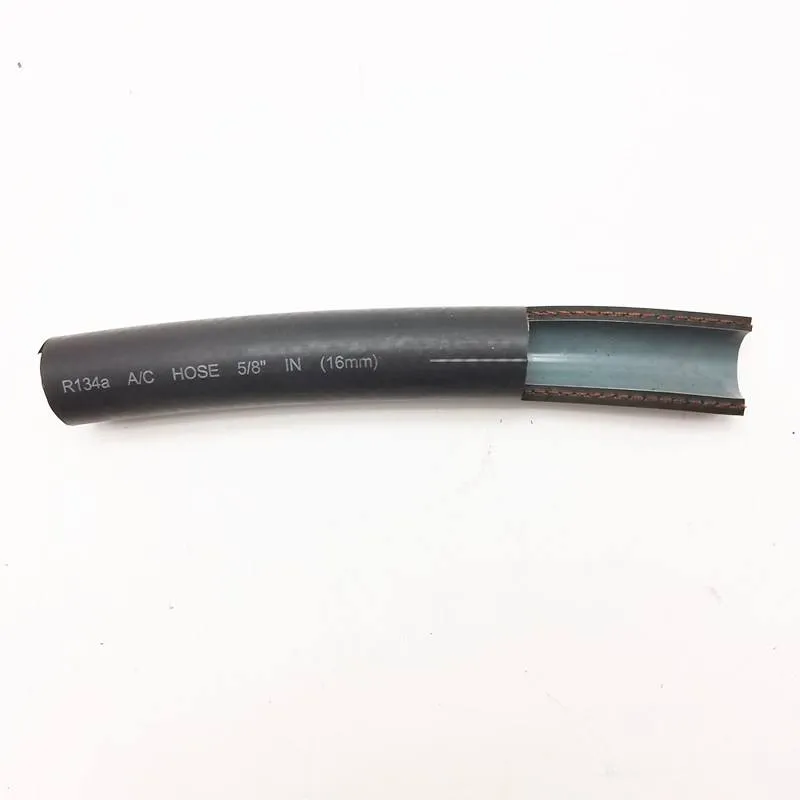Dec . 09, 2024 17:34 Back to list
Durable 4% wire reinforced hydraulic hoses for heavy-duty applications and efficient fluid transfer
Understanding 4 Wire Hydraulic Hose A Comprehensive Overview
Hydraulic systems are critical in various industries, serving as the backbone for machinery and equipment that demand high levels of force and precision. One essential component of these systems is the hydraulic hose, which is responsible for transporting hydraulic fluids from one part of the system to another. Among the various types of hydraulic hoses available, the 4 wire hydraulic hose stands out for its strength and versatility. This article will delve into its construction, applications, and benefits while offering insights into why it is a preferred choice for many hydraulic applications.
Construction and Features
The 4 wire hydraulic hose gets its name from the unique structure that comprises four layers of wire reinforcement. This design provides exceptional strength and durability, allowing the hose to withstand high pressure and temperature fluctuations. Typically made from synthetic rubber and reinforced with steel wires, the 4 wire hose can endure pressures that often exceed 4,000 psi. The connecting fittings are also crucial, ensuring secure and leak-free connections to the hydraulic system.
One of the defining characteristics of the 4 wire hydraulic hose is its ability to resist abrasion, ozone, and weather impacts. This makes it particularly suitable for outdoor applications or in environments where exposure to harsh conditions is inevitable. The inner tube is designed specifically to carry hydraulic fluids, and its composition prevents fluid degradation, ensuring a longer lifespan for the hose and optimal performance in the system.
Applications
The 4 wire hydraulic hose is widely utilized across various industries, including construction, agriculture, manufacturing, and automotive sectors. Heavy machinery such as excavators, bulldozers, and cranes often rely on this type of hose to transmit hydraulic fluid necessary for their operation. In agriculture, it is used in tractors and harvesting equipment to assist in lifting and controlling attachments.
4 wire hydraulic hose

Additionally, the automotive industry employs 4 wire hydraulic hoses in vehicles where hydraulic systems play critical roles. Brake systems, power steering, and lifting mechanisms are some examples where these hoses ensure safe and efficient operation.
Advantages
One of the primary advantages of the 4 wire hydraulic hose is its impressive pressure rating. The four-wire reinforcement allows it to handle high-pressure situations without fear of failure, which is crucial for the safety and reliability of hydraulic systems. Moreover, this type of hose offers a high degree of flexibility, enabling it to be installed in tight spaces without compromising its integrity.
Another significant benefit is its resistance to various environmental factors. The 4 wire hydraulic hose can endure extreme temperatures and exposure to chemicals, making it versatile for a wide range of applications. Its durability translates to reduced maintenance costs and less downtime, ultimately leading to increased productivity.
Conclusion
In the realm of hydraulic systems, the 4 wire hydraulic hose plays a pivotal role in ensuring operational efficiency and safety. With its robust construction, resistance to environmental challenges, and ability to handle high pressure, it is a trusted choice for industries that rely on hydraulic machinery. Whether in construction, agriculture, or manufacturing, the 4 wire hydraulic hose showcases its importance, enabling systems to function smoothly and effectively. As technology advances and industry standards evolve, the relevance of this hydraulic hose remains vital, solidifying its position as a key component in the hydraulic system landscape.
-
Best Four Steel Wire Spiral Hose Hydraulic R12 – Durable High-Pressure Hose Manufacturer
NewsJul.08,2025
-
High-Quality 1/4 Hydraulic Hose – Soft, Flexible & Durable Rubber Hoses for Industrial Use
NewsJul.08,2025
-
1 1 2 Inch Hydraulic Flexible Hose - Durable, Reliable, High-Pressure Solutions
NewsJul.07,2025
-
High-Quality 1 2 Rubber Hose - Durable, Flexible Hydraulic Solutions
NewsJul.07,2025
-
Discover SAE Hydraulic Hose Types - High Quality & Durable Hoses from Leading Factory Supplier
NewsJul.06,2025
-
High Pressure Wire Hydraulic Rubber Hose Supplier Durable & Reliable 1SN Hose Solutions
NewsJul.06,2025
